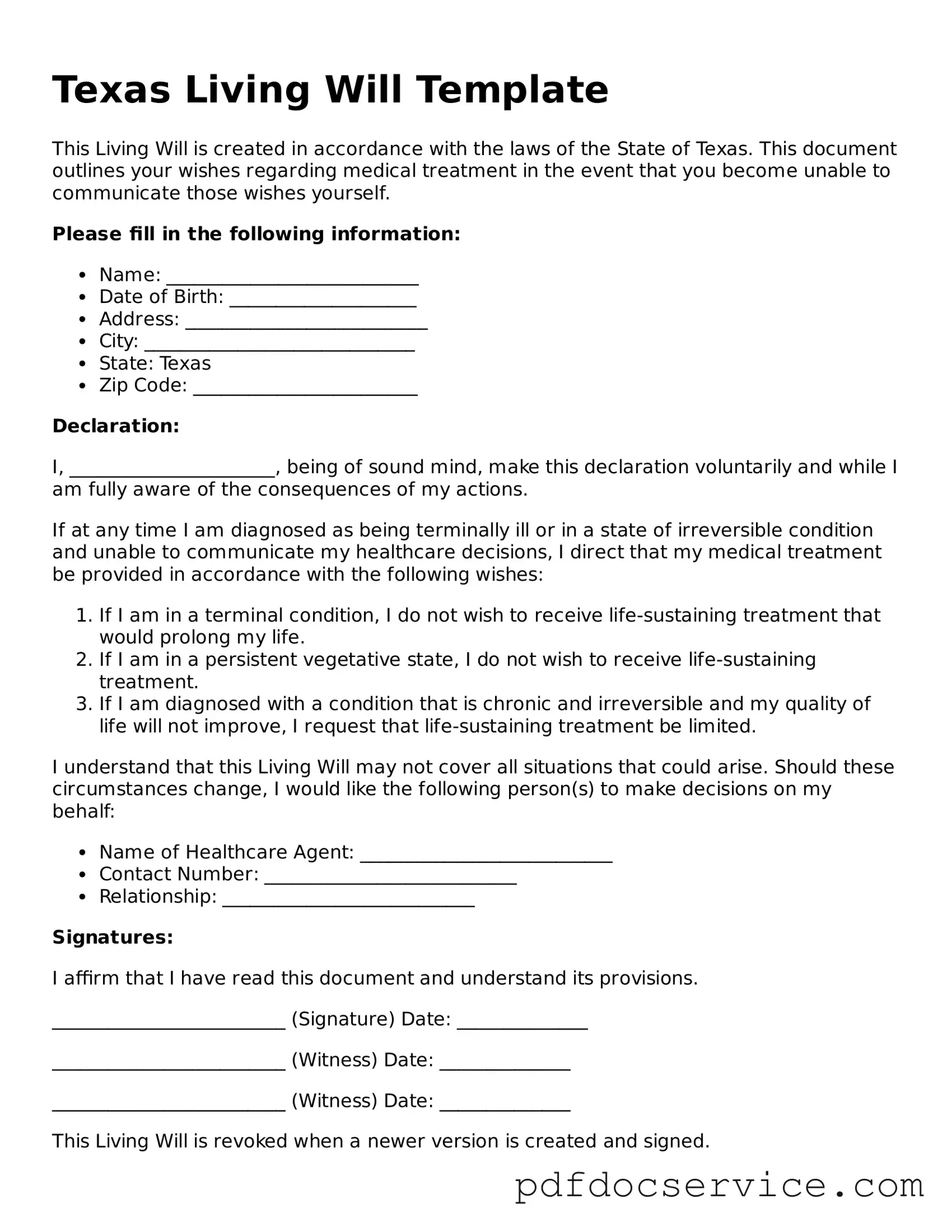Printable Living Will Template for Texas
A Texas Living Will form is a legal document that outlines a person's preferences regarding medical treatment in the event they become unable to communicate their wishes. This form ensures that individuals can express their desires about life-sustaining treatments and end-of-life care. By completing a Living Will, you take an important step in making your healthcare choices known to your loved ones and medical providers.
Open Living Will Editor

Printable Living Will Template for Texas
Open Living Will Editor

Open Living Will Editor
or
Get Living Will PDF
Finish the form now and be done
Finish Living Will online using simple edit, save, and download steps.